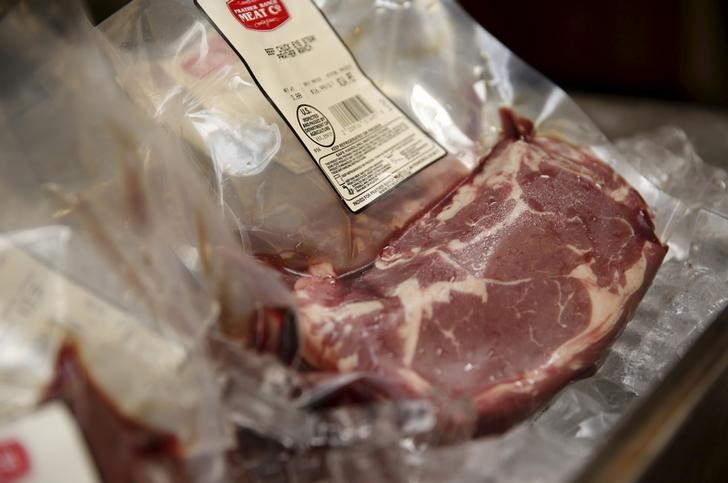(Updates with Harmony Beef, CFIA comments)
By Kelsey Johnson and Rod Nickel
OTTAWA/WINNIPEG, Manitoba, March 27 (Reuters) - Harmony Beef, an Alberta packing plant, halted cattle slaughter on Friday after the Canadian Food Inspection Agency (CFIA) kept some inspectors from work, due to a positive test for COVID-19 by a Harmony worker, the company said.
The partial closure follows a positive COVID-19 test by a worker at U.S. chicken company Sanderson Farms Inc SAFM.O announced this week. spread of COVID-19 has led to consumer hoarding of staple groceries, making meat-processing more lucrative.
Alberta's health department notified Harmony on Thursday that a worker who had not been on the job for days had tested positive, Harmony spokesman Crosbie Cotton said. The company then sent the other workers in his part of the slaughter area home for 14 days, even though they did not display symptoms.
In a statement, CFIA confirmed it did not provide inspection services on Friday after it learned that a Harmony employee had tested positive for COVID-19.
Federally regulated slaughter plants are not allowed to operate without inspectors present.
The Balzac, Alberta plant can process 750 head of cattle per day, much less than bigger plants in the province owned by Cargill Ltd CARGIL.UL and JBS USA JBS.UL . While slaughter has halted at Harmony, it is still carrying out other types of processing, Cotton said.
Harmony, owned by the Vesta family, hopes to fully re-open on Monday pending talks with CFIA, he said.
Alberta produces more beef than any other Canadian province.
Meat production is so profitable currently that Cargill and JBS have added Saturday shifts, said Kevin Grier, a meat and livestock analyst.
Meat plants have gone to great lengths to prevent the spread of COVID-19, including assembly of tents and trailers to create greater distance among workers, Grier said.
Harmony screens every worker daily for symptoms and increased cleaning in the plant weeks ago, Cotton said.
The CFIA told meat-processing plants last week it would reduce the agency's staffed hours at domestic plants because of capacity constraints.
